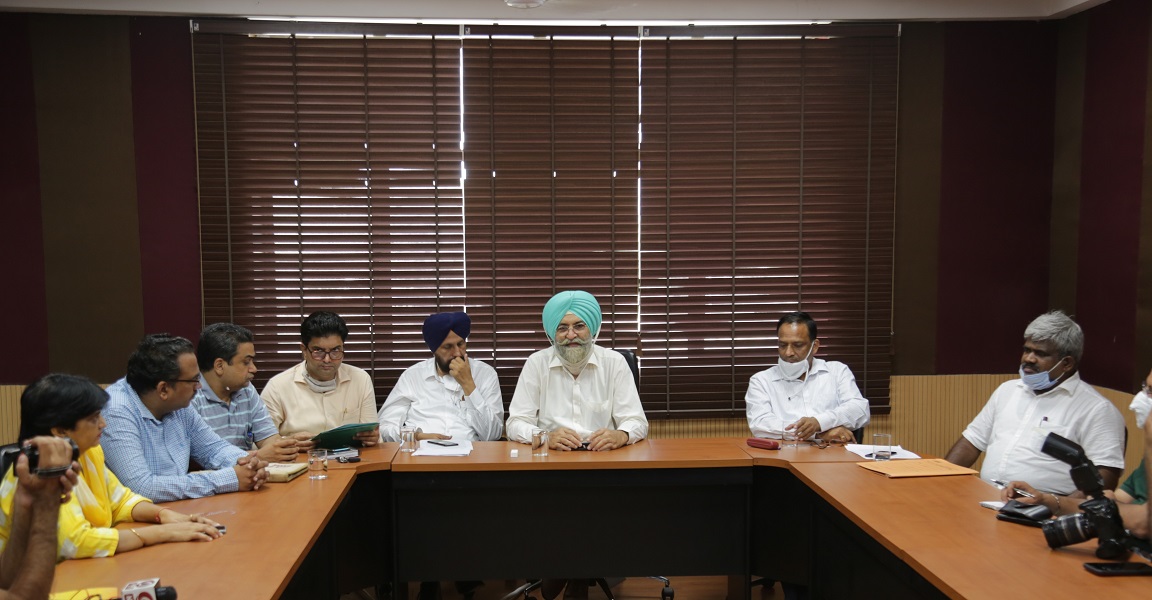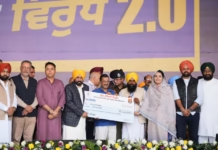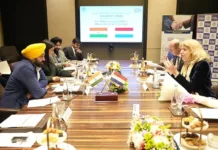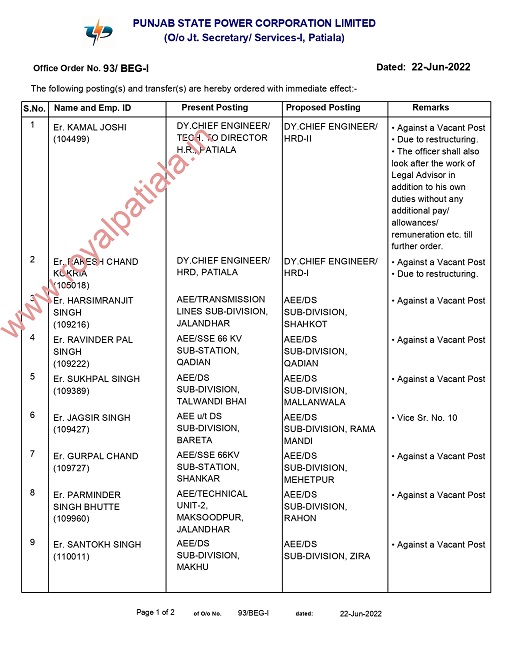To tackle Oxygen shortage- MRSPTU-CUP Don develops technology
Kanwar Inder Singh/ royalpatiala.in
The Vice Chancellor of Maharaja Ranjit Singh Punjab Technical University (MRSPTU ), Prof. Buta Singh Sidhu and Central University Punjab (CUP) officials addressed a joint press conference at MRSPTU to announce the successful development of Metal-Organic Framework (MOF’s), which would prove beneficial and play a crucial role in tackling oxygen shortage and making it affordable amidst the predictions of 3rd wave of COVID 19.
Prof. Sidhu said, “The current global pandemic has posed a challenge in oxygen supply to the patients at affordable prices in rural India. The citizens of India fight the grave situation with their bravery, and science has also been playing its role to find a solution to the grave problem”.
“However, still the remote availability of oxygen would be a problem which would grave and might hurt us during the 3rd wave predicted, where it is supposed that children would be exposed. The problem for supply in remote areas would be because cryogenic oxygen production is energy intensive, causes high pressure on transport in case of a developing nation like ours, where the road network is poorly managed, and the plant set-up cannot be decentralized,” said Prof. Buta Singh Sidhu.
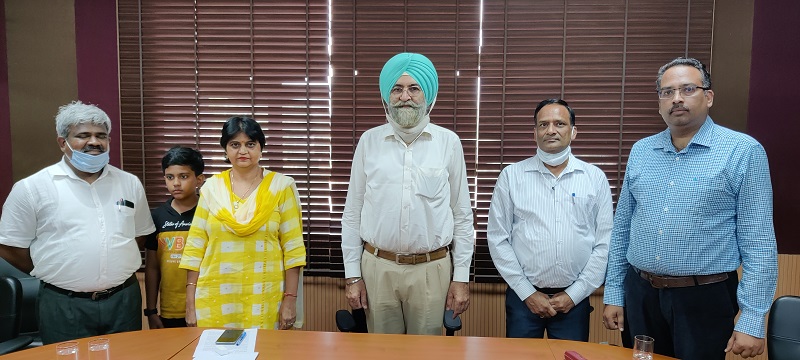
Explaining the technology, research collaborators Dr. J. Nagendra Babu, Assistant professor (Chemistry), Central University Punjab and his wife Dr. Meenu, Assistant Professor, Chemistry at MRSPTU (who were accompanied by son N. Uttamesh, who motivated them for the innovation) said, “Ambient air consists of 78% of nitrogen and 21% of oxygen. Presently commercially available zeolites or molecular sieves are being used for selective separation of oxygen from nitrogen. The syntheses of zeolites or molecular sieves is quite expensive and energy consuming technology. Herein, the scientists in a joint research work undertaken at MRSPTU, Bathinda and CUP have been successful in the development of Metal-Organic Framework (MOFs) with cavity specific for fit and selective binding of nitrogen over oxygen, which is the basic principle behind the Pressure Swing Adsorption (PSA) based oxygen concentrator.”
They further explained, “These MOFs can be used as substitute materials for costly zeolites and molecular sieves that are being used commercially. These MOFs are easy to prepare in energy-efficient greener synthetic methods. The findings do establish the MOFs use in Pressure Swing Adsorption (PSA) process oxygen concentrators at individual scale and could be scaled up to even 300 beds hospital. Apart from this, these MOFs can also be used for enhancing the oxygen storage capacity of oxygen cylinders, which would be prospected later. The purity, efficiency and recovery of the PSA process require further optimization and we look forward to the same later on in the submitted proposal to the Department of Science and Technology, Government of India Special Call for Oxygen Concentrators.”
“Both the universities do undertake research on local and national issues as a part of their research mandate. In the present context the oxygen shortages have posed challenges to Indian Scientists and they have come up to the expectations of the citizens and government,” said Dr. V. K. Garg, Dean, Student Welfare of the Central University of Punjab.
To tackle Oxygen shortage- MRSPTU-CUP Don develops technology . MRSPTU, Dean, Research and Development, Dr. Ashish Baldi briefed about the various research projects being carried out in the MRSPTU, which include prevention and screening barriers of Breast Cancer in Malwa, unique apps on medicinal value of plants, quality evaluation of selective spices, establishment of Food testing Laboratory for checking adulteration etc.
Prominent among those present include Registrar, MRSPTU, Dr. Gurinder Pal Singh Brar, Dean, Consultancy & Industry Linkage, Dr. Manjeet Bansal, Director Public Relations, Harjinder Sidhu, Dr. Rubal Kanozia and Shri Robin Jindal, Public Relations Officer, CUP among others.
July 21,2021

